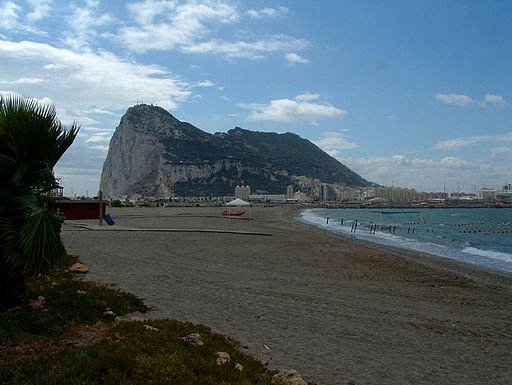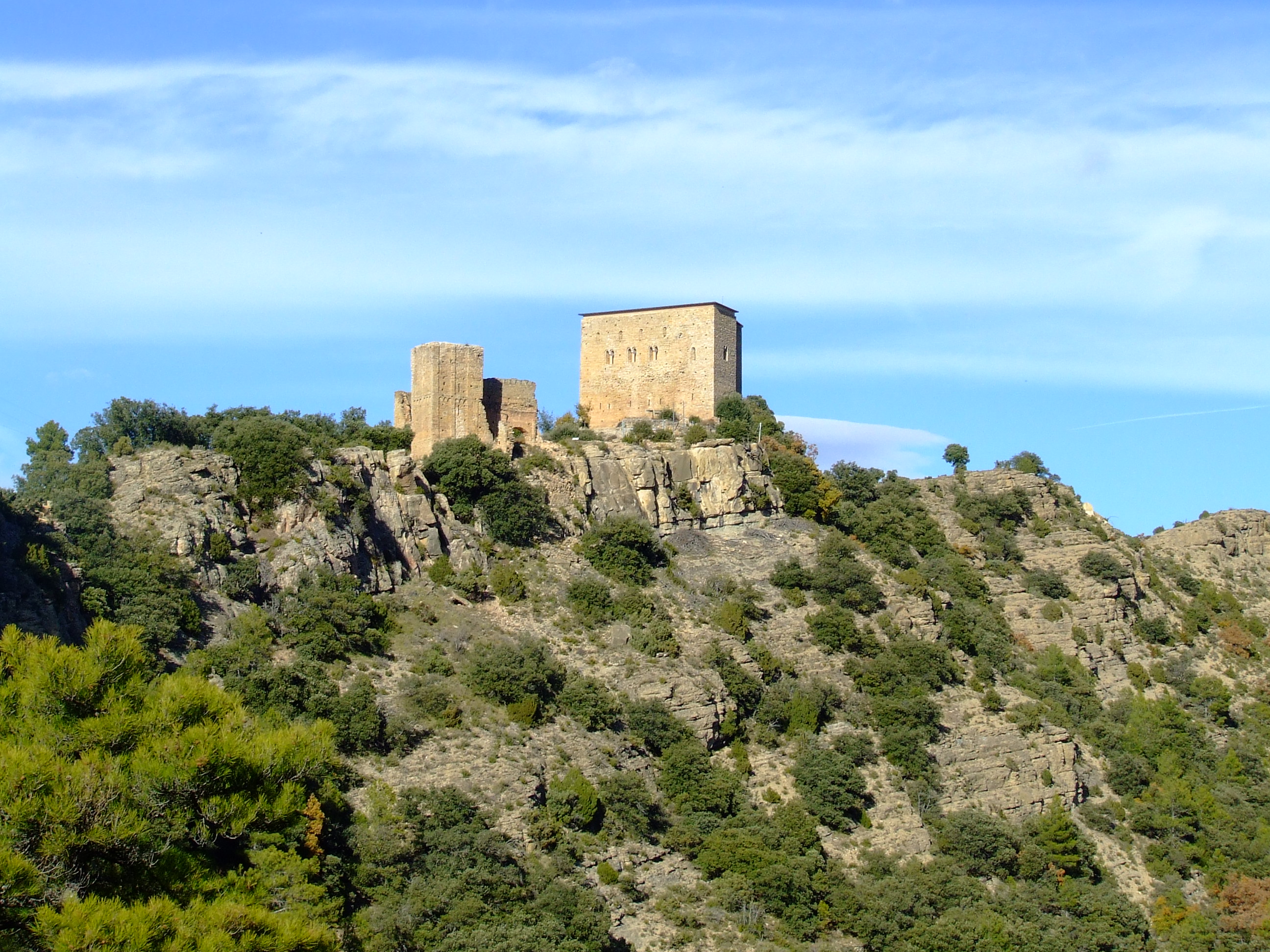Report on the first Network workshop, July 2017
Well, it has been a while since there was much to report here but stuff was going on behind the scenes and some of it has now emerged in the form of the first Workshop of our Network, which happened on the 24th of July at the University of Leeds. As the host, I got both to organise and write the minutes, but that means I also have to write the blog post, so here we are!

Whose frontier exactly, and onto what? The Rock of Gibraltar viewed from La Linea, its meeting point with Spain, with the open sea visible beyond. Image from Wikimedia Commons.
The point of this assembly was twofold, secondly to lay out some kind of set of priorities for our eventual first conference, but before that could happen, to agree what we wanted this whole project to be about. While it had started with an agenda of mine and Emma Cavell's, now we have all these excellent people on board, it can't stay that way; it must adapt to what they want to achieve as well. So, before the meeting, I dragged out of my files a version of the agenda that Emma and I first came up with back in 2013 when this whole project first formed as an idea, and sent it out to be destruction-tested by m'learned colleagues. Then the summons was sounded and, after a preliminary social gathering the evening before for those coming from afar, we all convened at the Leeds Humanities Research Institute and, powered by the best that Good Food at Leeds could provide on our budget, got talking. We were, for this recording:
- Dr Jonathan Jarrett, representing for the home team and your humble author
- Professor Naomi Standen, University of Birmingham, valuable non-European perspective
- Dr Alan V. Murray, another University of Leeds participant and source of bewildering edge cases
- Dr Emma Cavell, Cardiff University, project originator and alive to gender issues
- Dr Alex Metcalfe, Lancaster University, used to a world where south is at the top of maps
- Dr Álvaro Carvajal Castro, University of the Basque Country, joining us by internet telephony
- Dr Andy Seaman, Christ Church Canterbury University, earlier and more western than any of us others
- Dr Luca Zavagno, Bilkent University, all at sea or so he would insist
- Dr Hajnalka Herold, University of Exeter, to remind us that Europe isn't all Latinate, Christian or textually evidenced
I hope they will all forgive me these descriptions... Álvaro tried manfully to be present at a distance but eventually the technology defeated us; otherwise, it was a balanced and useful gathering, I think. We started with me explaining how we got here and why I'd written that agenda paper, and then people very kindly told me what they thought of it, and a sense of what we each cared about and where that overlapped duly began to emerge. I have to say here how much fun it is to talk at this kind of level about something that interests you deeply with a bunch of people who also care as deeply and are as well informed as you, but about different aspects of it; we all learnt a lot, I think, and went away with new ways to think about what we meant by 'frontiers' and how we might study them.

The border running through Drankhandel De Biergrens, in the 'frontier' town of Baarle-Hertog, I mean Baarle-Nassau, in Belgium and the Netherlands in the Netherlands or Belgium, I mean... Well, the site I got this from, The Lady Travels, explains it better than this; click through! And thanks to Alan Murray for bringing it to our attention. I need a drink now...
So what, in the end, did we come up with? Well, we came up with materials for a Call for Papers for the conference, for a start, which I will hopefully have sent round us and then sent out into the world in the next few days. But we also came up with some common themes and concerns, and a few days later I came up with a digest of that which summarised what I thought we think on the key issues. I've linked that file to this clause, but here's a bulleted summary:
- DEFINE: while there are lost of different aspects to 'frontiers', some of which can exist only in the mind, social constraints, gender constructs, identity and so on, we as a group are mostly more interested in the geopolitical sense of the word, a territorial circumscription of space between two or more differing geopolitical entities (if that will do as a definiton...). While we should probably not forget the others, we'll start there.
- LINE OR ZONE is an unhelpful question; if there's a line, there's a zone round it, and for the medieval world, the lines were always being crossed; states might set penalties for that but where they put the lines couldn't really erase the local area's sense of self. The medieval world certainly could put a line between two entities and mark it; but it couldn't usually do so in such a way that everything of one was on one side and everything of the other was on the other.
- concomitantly, the TERMINOLOGY of our sources is absolutely crucial to what we do.

For example, here is the twelfth-century structure of the Castell de Llordà, above the Vall d'Isona in Catalonia. In 973 this place was being maintained as a garrison by the Count of Barcelona, who described it as being 'in the furthest most extreme marches'. But it was fed from the area roundabout. So was it on the frontier? Surely the frontier started where its land ran out. Didn't it? And so on... Image by Gustau Erill i Pinyot (Treball propi) [CC BY-SA 3.0 o GFDL], via la Wikimedia Commons
- In that case it's probably as much the people who live in the frontier who CREATE it as it is any dictate of the powers on either side; a line is meaningless if no-one's there to respect it, or if they are but just don't. But could such a community prevent somewhere becoming a frontier if state actors wanted it to be? Is banditry and passive resistance enough to break down its enforcement?
- The old agenda's matrix of questions about how people experienced the frontier might well be a useful one, in that case. (I should pull that out into a separate post, but maybe once I've got the Call for Papers out...)
- we may not be able to actually pull this stuff into a new theory of the frontier (though I hope we'll get there) but we can certainly shape some new tools to think with!
And it's with hopes like that, and quite a few documents to write, that I wrap up the report of this successful workshop, with only a final note that as scholars and owners of stomachs we recommend Zaap and Casa Colombiana to anyone eating in the Leeds area...
